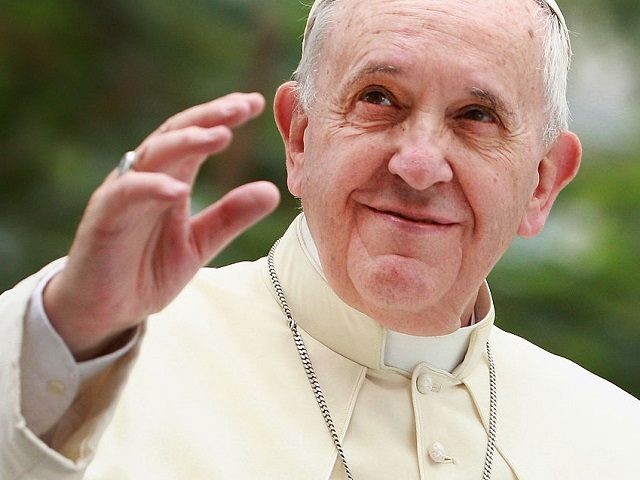The first gift that the risen Christ offers his followers is the forgiveness of sins, Pope Francis said in his homily Sunday, when the Catholic Church celebrates the feast of divine mercy.
The pope recalled that when Jesus first appeared to his disciples on the evening of Easter Sunday, he breathed on them, granting them the gift of the Holy Spirit as well as the power to forgive sins, in a scene evoked by the readings for the day.
The gospel teaches us how to “touch today with our hand the mercy of Jesus” by stressing that “the very evening of Easter, soon after rising from the dead, Jesus begins by granting the Spirit for the forgiveness of sins,” Francis said.
To experience love, we need to begin by letting ourselves be forgiven, Francis said. Since “going to confession may seem difficult,” we can be tempted to do what the disciples did in the Gospel, “to barricade ourselves behind closed doors,” he added. “They did it out of fear, yet we too can be afraid, ashamed to open our hearts and confess our sins.”
The pontiff said that shame itself is nothing to be afraid of, since it can be our ally in finding forgiveness.
“May the Lord grant us the grace to understand shame, to see it not as a closed door, but as the first step towards an encounter,” he said. “When we feel ashamed, we should be grateful: this means that we do not accept evil, and that is good. Shame is a secret invitation of the soul that needs the Lord to overcome evil.”
The tragedy, he added, “is when we are no longer ashamed of anything. Let us not be afraid to experience shame! Let us pass from shame to forgiveness!”
The apostle Thomas teaches today’s Christians of the need to meet Christ personally, to reach out and touch Him, the pope said.
“Despite his lack of faith, we should be grateful to Thomas, because he was not content to hear from others that Jesus was alive, or merely to see him in the flesh. He wanted to see inside, to touch with his hand the Lord’s wounds, the signs of his love,” he said.
Thomas was known as the twin, and “in this he is truly our twin brother,” Francis said. “Because for us too, it isn’t enough to know that God exists. A God who is risen but remains distant does not fill our lives; an aloof God does not attract us, however just and holy he may be.”
“No, we too need to ‘see God,’ to touch him with our hands and to know that he is risen for us,” he said.
By entering into the mystery of God through Christ’s wounds, “we come to realize that mercy is not simply one of his qualities among others, but the very beating of his heart,” Francis said.
The great enemy of Christians is discouragement and resignation in the face of recurring sins and failure, since we may be become tempted to close the door of our hearts to the Lord’s forgiveness.
“The disciples experienced it at Easter, when they recognized with disappointment how everything appeared to go back to what it had been before. They were still in Jerusalem, disheartened; the ‘Jesus chapter’ of their lives seemed finished, and after having spent so much time with him, nothing had changed,” he said.
Today’s Christians may fall prey to the same temptation, the pope said.
“We too might think: ‘I’ve been a Christian for all this time, but nothing has changed; I keep committing the same sins.’ Then, in discouragement, we give up on mercy.”
On the feast of divine mercy, the Lord challenges us: “Don’t you believe that my mercy is greater than your misery?” he said.
“Every time we are forgiven, we are reassured and encouraged, because each time we experience more love. And when we fall again, precisely because we are loved, we experience even greater sorrow – a beneficial sorrow that slowly detaches us from sin,” he added.
Follow Thomas D. Williams on Twitter Follow @tdwilliamsrome

COMMENTS
Please let us know if you're having issues with commenting.